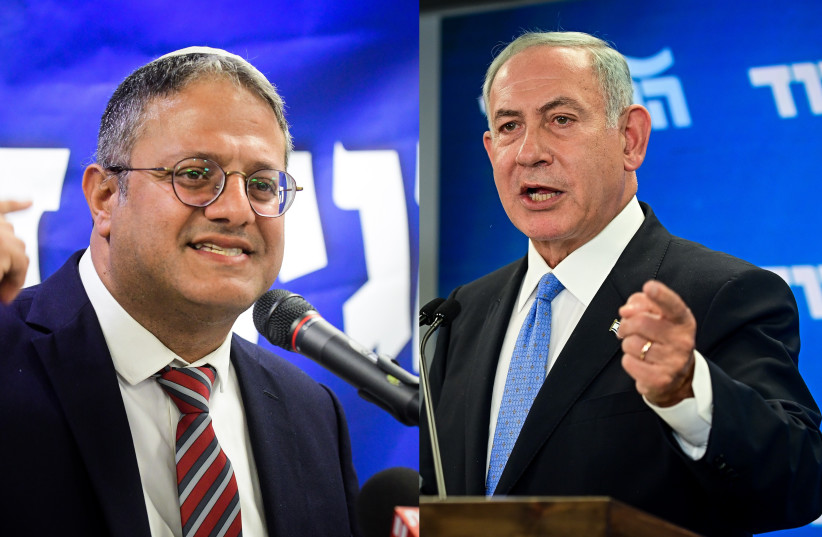The strength of democracy -opinion

Doubters and critics have thrown shade on democracy for centuries. Yet, these two elections in two different lands show that democratic institutions can endure in the face of bitter differences.
Israel and America held elections exactly a week apart with very different ideological outcomes but with the same message: Even in fractured societies where majorities are hard to gather and harder still to hold together, democracy works.
Doubters and critics have thrown shade on democracy for centuries. Yet, these two elections in two different lands show that democratic institutions can endure in the face of bitter differences, fickle voters, changing election rules and vast philosophical divides about domestic culture and national interests.
Benjamin Netanyahu emerged as the big winner in Israel. Since Israel has a system of proportional representation (every party that wins at least 3.5% of the vote gets four seats or more in the Knesset), its parliamentary politics are legendarily unstable. A single resignation from the ruling coalition can trigger new elections.
Generally, even the largest parties rarely command pluralities above 39%, meaning that negotiation with smaller parties is always ongoing.
This time, Netanyahu had to reach beyond his usual allies among the religious right to tiny parties that had more extreme ideas. One of those parties, led by ultranationalist Itamar Ben-Gvir, is known for its controversial policy positions.
Still, Israeli democracy hummed right along. Its institutions endured and continue.
While the presumed new Israeli prime minister is committed to strengthening the Abraham Accords, which has made peace between Israel and four Arab lands, everything will depend on his ability to work with his new coalition partners. If Netanyahu can pull it off, peace and freer trade could bloom across the Middle East.
In the United States, the elections to decide control of two houses of Congress did not go as the experts predicted. The Republican red wave only appeared in New York, Florida, Texas and California, where Republicans flipped a number of seats in the US House.
Americans trusted their democratic institutions to faithfully count their votes
Elsewhere, the Democrats won control of Michigan’s governorship and both houses of the legislature for the first time in 40 years. Key Democrats held on to win by slim majorities in Nevada, Arizona and Georgia, where a runoff is slated for December. It is one of the smallest midterm losses by the president’s party in generations and a result no one predicted.
STILL, WHAT did not happen is the most instructive. There were no armed reprisals, no mass strikes or sit-ins and no threats of secession.
Indeed, at this stage, there have not even been any lawsuits announced, although Arizona candidate Kari Lake said that she will not concede and is speaking to her legal team about election results. Even razor-thin losses in Nevada and Arizona were met with resignation, not violence.
Instead, Americans trusted their democratic institutions to faithfully count their votes and peacefully allow the majority’s pick to take power and are trusting in the legal process.
The strength of America’s democracy has made it the most powerful and influential country in the world. If its institutions are functioning, and there is every indication that they are, America will remain America no matter who is elected to Congress or the presidency.
The only downside is the aging of the establishment. The generation born after World War II, the Baby Boomers, remains in charge of the White House, Congress, and many cultural and political institutions. America is a vibrant society where young people emerge with plans and proposals, as seen in America’s entrepreneurial sector. America’s governing bodies could use some of this youthful energy and idealism.
Both parties, Republican and Democrat, harbor talents whose competing ideas produce innovations, big and small. A secure democracy will let them continue to experiment, test and invent.
America and Israel should not doubt the strength of their democracies. The aftermath of dramatic campaigns in both countries shows that a system of government that lets the people rule has the energy to survive and thrive.
Friends of democracy should also take heart: Democracies have forests of institutions, not a single sapling that can be easily felled. The US has the presidency, independent courts and two houses of Congress that check and balance one another.
It has a free press and a thicket of non-government organizations to act as both watchdogs and guard dogs. It also has 16 separate intelligence and law-enforcement agencies – including the CIA and FBI – to defeat enemies, both foreign and domestic.
Finally, it has its last and best defense, vibrant and active citizenship. Individual Americans often step up to reform and renew American institutions. President Vladimir Putin and other autocrats may scowl but these past weeks show that democracy is a lot more durable than the dictators imagine.
The writer is a Moroccan publisher. He’s on the board of directors for the Atlantic Council and the board of trustees for The International Crisis Group in Washington.
Jerusalem Post Store
`; document.getElementById("linkPremium").innerHTML = cont; var divWithLink = document.getElementById("premium-link"); if (divWithLink !== null && divWithLink !== 'undefined') { divWithLink.style.border = "solid 1px #cb0f3e"; divWithLink.style.textAlign = "center"; divWithLink.style.marginBottom = "15px"; divWithLink.style.marginTop = "15px"; divWithLink.style.width = "100%"; divWithLink.style.backgroundColor = "#122952"; divWithLink.style.color = "#ffffff"; divWithLink.style.lineHeight = "1.5"; } } (function (v, i) { });

